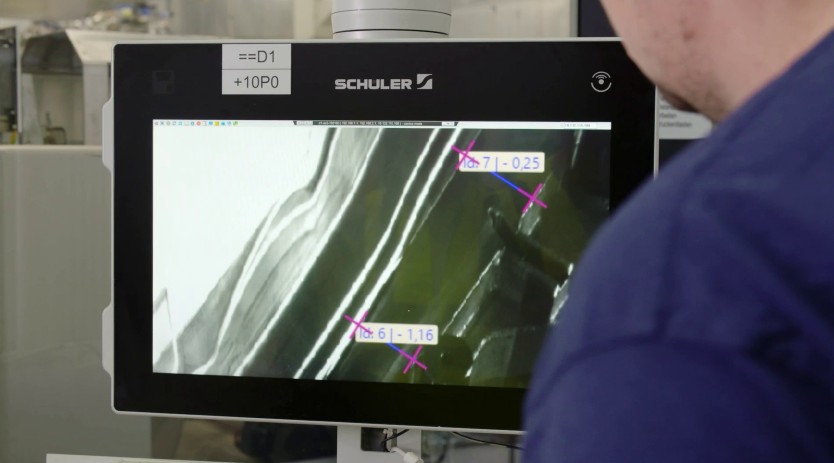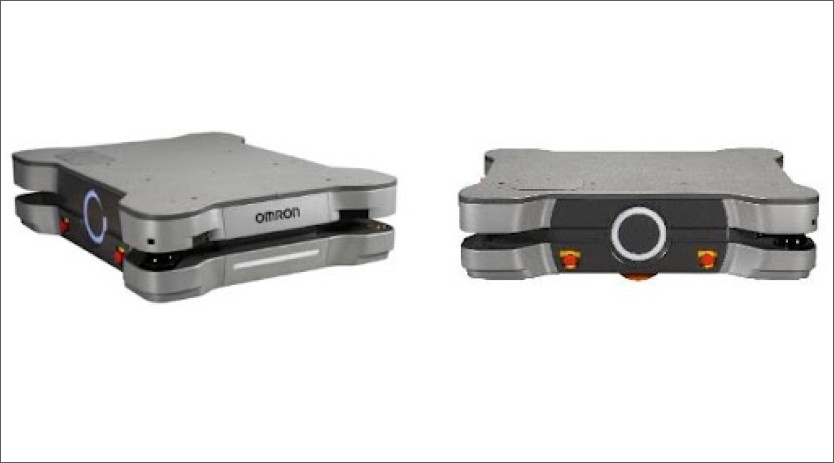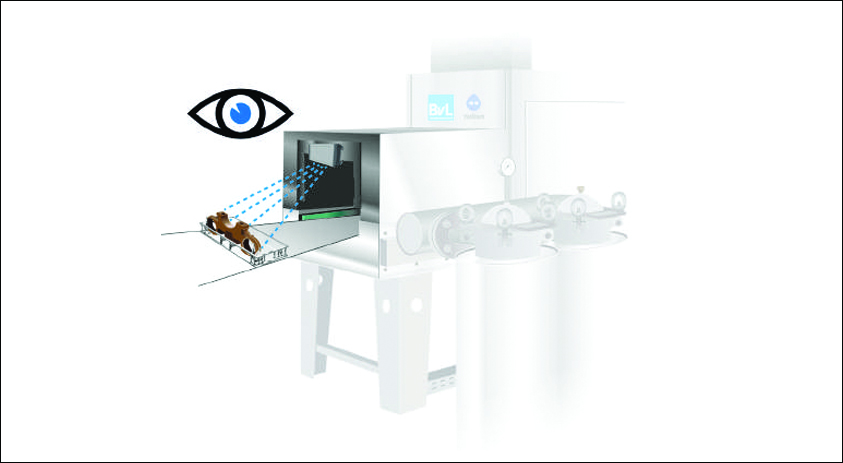A robust platform for Indian manufacturers
June 30, 2016 1:34 pm
Today the Indian manufacturing industry which has the technical capability and good quality system and a robust process has got big potential to tap all the identified markets.Muralishankar Sambasivam, VP, Association of Indian Forging Industry
Most of the global OEMs and tier 2 players have set up their international purchasing offices in India and they have set very high targets for procurement from India. Muralishankar Sambasivam, Vice President, Association of Indian Forging Industry talks on what’s changed about Indian manufacturing sector post “Make in India” initiative launched.
A good move in the right directionThe “Make in India” initiative has definitely been a good move in the right direction to give the necessary boost to the overall manufacturing sector. It has created an all-round positive business environment and sentiment. The campaign has definitely been fruitful for certain segment of the forging industry and we are anticipating an increase in demand from the non-auto sector in the medium and long term. After the launch this initiative, lot of OEMs and tier 1 companies are looking at Indian automotive component industry as a potential source. Also car manufacturers like Hyundai, Maruti, Volkswagen and Nissan are looking at India as a manufacturing base and market them to the Asian and African markets. This translates into increased business opportunity for growth of the auto component industry.
The government on its part has made some positive steps in order to attract the global companies to be a part of the “Make in India”. The following are the few initiatives:• Because of the coal block auctions, the production of coal has touched a record during last year and imports have come down• Because of the above initiative and lot of push to the solar sector, the power availability in India has drastically improved• Focus on infrastructure development has been kicked off with the allocation of higher funding for the same. This has resulted in commencement of several National Highways.
Robust opportunity for Indian manufacturersMost of the global OEMs and tier 2 players have set up their international purchasing offices in India and they have set very high targets for procurement from India. Because of this, lot of Indian companies will be benefited. Currently companies like Boeing, Air Bus and some other defence equipment manufacturing companies are also looking at Indian manufacturers to make components and aggregates in order to fulfil their buy-back obligation to the government, which will translate into a big opportunity for Indian manufacturers to capitalise. Today the Indian manufacturing industry which has the technical capability and good quality system and a robust process has got big potential to tap all the identified markets.
Surging to a smarter futureAfter the IT revolution, all global manufacturers have started looking at India with greater respect in terms of higher technical capabilities rather than a cheap labour destination. Over the last couple of decades, many Indian companies like Bharat Forge have made a mark on the global manufacturing arena. With lot of emphasis on the performance and warranty of automotives and other manufacturing goods, the quality and consistency of the products have become paramount. Lot of Indian manufacturers have the necessary system, processes and monitoring procedures to meet this growing demand and stringent quality standards and hence global OEMs prefer India. Another major factor is excellent communication skills in English as compared to countries like China, Korea and Taiwan.
Last but not the least is the adherence to IPR procedures by most of the Indian manufacturers as compared to the counterparts in China. This factor has tilted the scale in favour of India as compared to China.
Remove hurdles for ‘Make in India’ to happenNeed for stronger support from government: The need of the hour is aggressive and assertive political action that will provide a level playing field to Indian manufacturers to become competitive in the global platform and other relevant policy reforms to foster ease of doing business. Passing of crucial bills like labour reforms and GST is essential.
Lack of modern equipment among companies in small and very small scale: The majority of companies that belong to this category are using outdated technologies like belt drop hammers for forging, band saw for cutting raw material, reciprocating compressors for air utility. Weak linkages with suppliers and low levels of knowledge of modern technology are the main reasons for lack of technology up gradation. In this regard, the manufacturing sector has made a lot of representation to the government, with regard to the Technology Upgradation Fund (TUF) and interest subvention. The government has to act on this.Shortage of skilled and un-skilled labour: The reason can be inability of forging companies to pay comparable attractive remuneration to employees. Labour retention rates are also low and workers tend to switch jobs with large OEMs which offer them better working conditions and cleaner environment. The existing ITIs or polytechnics have been unable to meet the rising demand for skilled manpower by the forging units. The government needs to establish new ITIs or polytechnics near all forging clusters. Prime Ministers Skill India initiative should start yielding results.
Availability of good quality power and increasing power price: Since forging is power intensive, the availability of good quality power consistently at competitive tariff is paramount for competitive operations, global competitiveness of the sector and for supporting manufacturing. However, because of the various initiatives by the Government, the power availability is better.
Power shortage has been a major concern for many companies located in several industrial belts across the country. Lack of adequate power supply leads to the usage of gensets thereby increasing the operational cost and finally the cost of the end product. This leads to a dent in overall competitiveness.
As per government’s ambitious target of increasing the contribution of manufacturing output to 25 per cent of Gross Domestic Product (GDP) by 2025, from 16 per cent currently, it is imperative to revisit the existing policies for giving a push to the industry and making the scenario globally competitive. In order to overcome this challenging situation, Indian forging sector suggests to take following immediate and rational steps to balance the economy: • One of the major concerns of forging industry is steel pricing. The government should give waiver to the overseas steel mills that already have the country’s certification from getting the BIS certification.• Make it mandatory for even components manufacturing companies abroad to get BIS certification.• For “Make in India” to be a reality for forging industry, consider the additional export benefit to compensate for the steel price parity between global and domestic steel manufacturers.• Value added product with skilled labour involvement is the key factor for making “Make in India” initiative. Today Indian forging industry is well equipped to meet this challenge.• Implementing a mechanism similar to LME (London Metal Exchange) or AMM (American Metal Market) for Indian mills as well will ensure the pricing transparency and bring it in line with global standards enabling us to create a robust and regulated market.• Considering the high profitability of NMDC (which is above 50 per cent), the government should reduce the price of iron ore to help the steel industry to be more competitive.
AIFI’s initiatives in line with “Make in India”AIFI has started conducting technical seminars and training at various locations in India to upgrade the skill set of the workforce associated with the industry. AIFI has also come up with a major initiative that will serve as a platform to bring the industry together under a biennial conference starting this year. The inauguration conference will be held in Delhi during December 2016. Purposes of this conference are as follows:• To share and exchange technical knowledge, innovations, improvements, expertise and ideas within the industry. It will be a great place to learn and grow under one roof.• It will serve as a platform for equipment and technology suppliers for forging industries to showcase their latest production and technology.
Cookie Consent
We use cookies to personalize your experience. By continuing to visit this website you agree to our Terms & Conditions, Privacy Policy and Cookie Policy.



















 English
English Hindi
Hindi